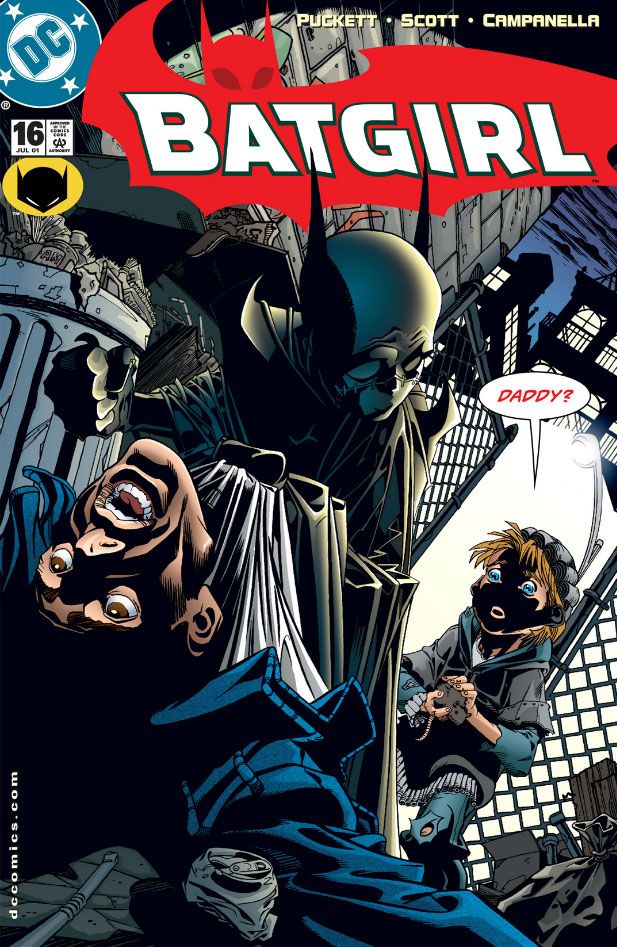Writer: Kelley Puckett
Pencils: Damion Scott
Inks: Robert Campanella
Colors: Jason Wright
One thing about this Batgirl series—writer Kelley Puckett frequently makes Gotham City itself a supporting character. Like Will Eisner with his The Spirit stories, Puckett has a similar knack for involving Cass with downtrodden people, usually in moody one-off stories that show the human cost of crime and just how lonely and uncaring a vast, dirty metropolis can be. Puckett pulls these guest losers from Gotham City's lower levels, just adjacent to its sewers, then examines them sympathetically. The people Cass meets live desperate lives, come to tragic ends and leave our naïve hero bemused.
Well, any city where kids are reduced to
tossing rats in the air for fun is no place to bring up a family. Especially if you’re a single dad who can’t
stay out of trouble. After Cass breaks
up the rat-game, one of its little spectators—Damion Scott exaggerates this kid’s
pathetic nature by depicting him as a short, stunted thing, his pants pooled
around his shoes as if he’s literally been squashed by the hardships of his
life—begs her to help his father, who’s involved in a bank robbery.
Puckett pulls a smart misdirection ploy and
even though he spends most of his time with the robbers, the final twist further develops the nurture versus nature theme running through Batgirl. We know Batgirl’s father to be a horrible
person, and he created Cass to be just as horrible, if not worse—you know, the “perfect
killing machine.” At this point in her
development, Cass has to believe she can change, that she can overcome biology
and even early conditioning to become a force for good. So it’s important she also reassure the kid
of his own basic goodness no matter what his father is really like. She’s not just bucking up his spirit, she’s
also shoring up her own. Through Batgirl’s
story, Puckett explores the influence of parents—are we truly destined (or
doomed, in Cass’s case) to become our own parents in the end? Is violence and dysfunction cyclical and, if
so, what does it take to overcome it for good?
I love these short stories, these
stand-alone issues. The best ones pay
off in emotional riches, as in this issue’s coda.


No comments:
Post a Comment